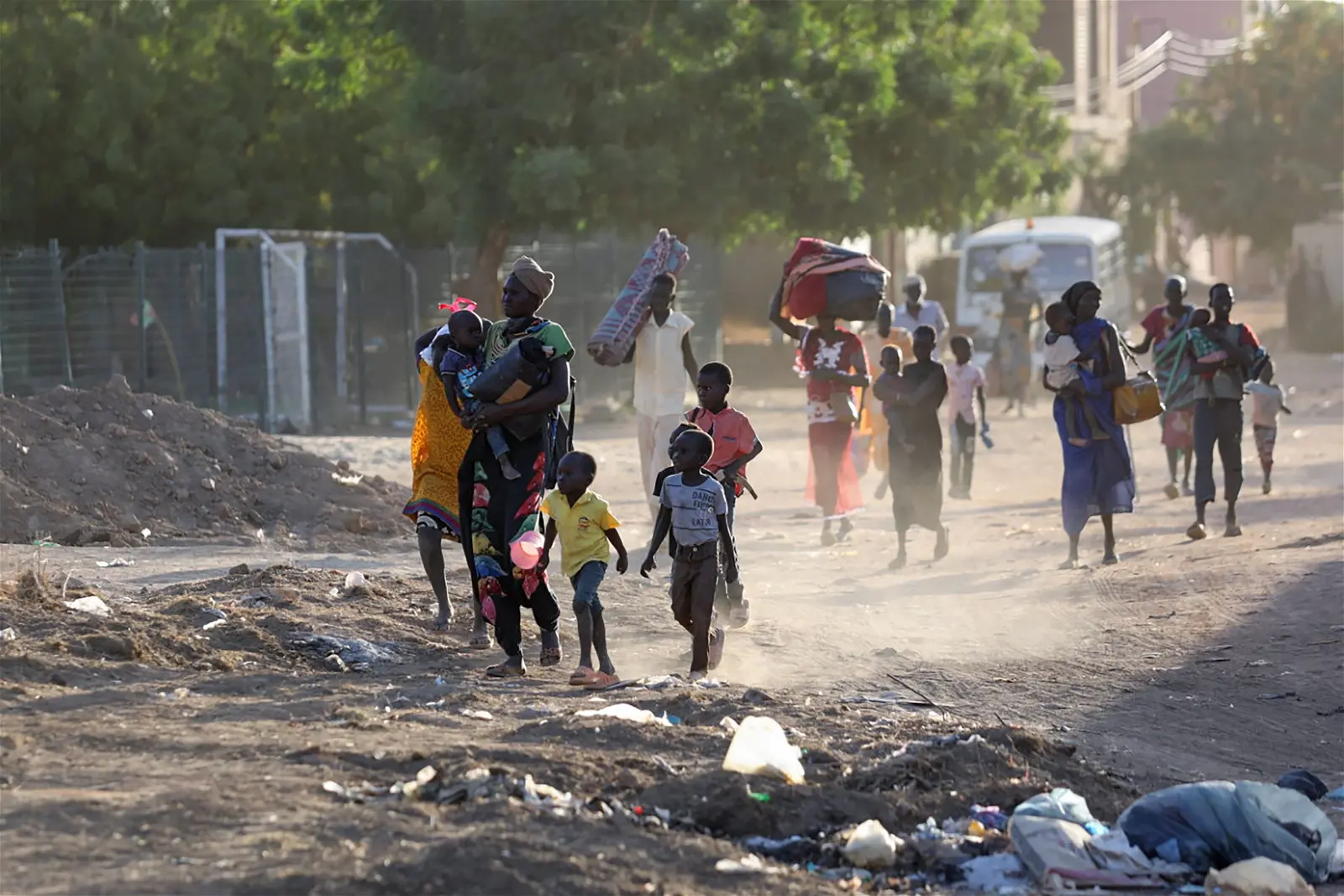UN says Sudan near ‘breaking point’ as battles flare
Gun battles and explosions again rocked Sudan’s capital Monday despite the latest truce agreed between warring generals as the United Nations described a humanitarian catastrophe. The chaos and bloodshed, now in their third week, have sparked an exodus of tens of thousands of Sudanese to neighbouring countries including Egypt, Chad and the Central African Republic. […]

People fleeing Sudan fighting
Gun battles and explosions again rocked Sudan’s capital Monday despite the latest truce agreed between warring generals as the United Nations described a humanitarian catastrophe.
The chaos and bloodshed, now in their third week, have sparked an exodus of tens of thousands of Sudanese to neighbouring countries including Egypt, Chad and the Central African Republic.
Hundreds have been killed and thousands wounded since fighting erupted on April 15 between Sudan’s army chief Abdel Fattah al-Burhan and Mohamed Hamdan Daglo, who commands the paramilitary Rapid Support Forces.
Millions of Sudanese unable to afford the inflated prices required to escape the battles have sheltered in their homes with dwindling food and water and frequent power cuts, as fighter jets thunder through the sky on raids that have drawn heavy anti-aircraft fire.
- NAFDAC: We banned importation of Indomie noodles over cancer scare
- Tiwa Savage To Perform At King Charles III Coronation
Warplanes struck northern areas of the capital, a witness told AFP, while another reported “armed clashes in central Khartoum”.
Burhan and Daglo have violated multiple ceasefires and extended the latest by 72 hours late on Sunday.
While foreign nations have evacuated thousands of their citizens by air, road and sea, around 50,000 Sudanese have fled overland to neighbours, said the UN.
In a makeshift camp near Adre on the Chadian border, UN refugee agency staff were handing out emergency food rations to families who fled the violence with few belongings, sitting in the sand in the shade of trees.
“Today I have no food for my children and no means of work,” one refugee, Mahamat Hassan Hamad, a tailor, told AFP, trying to hold back tears. “My sewing machines were taken by the attackers.” He blamed the RSF who “destroyed everything in their path.”
‘Lives turned upside down’
Sudan’s turmoil has seen aid workers killed, hospitals shelled, humanitarian facilities looted, and foreign aid groups forced to suspend most of their operations.
“The scale and speed of what is unfolding is unprecedented in Sudan,” said Stephane Dujarric, spokesman for UN chief Antonio Guterres. “We are extremely concerned by the immediate as well as long-term impact on all people in Sudan, and the broader region.”
Top UN humanitarian official Martin Griffiths arrived in Nairobi on an urgent mission to look for ways to bring relief to millions.
“The humanitarian situation is reaching breaking point,” he said on Twitter, later calling it “catastrophic”.
The UN World Food Programme said it expected to soon resume food distribution in some parts of the country after a suspension following the deaths of three of its aid workers.
“Over 15 million people faced severe food insecurity in Sudan before this conflict. We expect these numbers to grow significantly as the fighting continues,” WFP said.
At least 528 people have been killed and almost 4,600 wounded in the violence, according to Sudan’s health ministry, but the real death toll is feared to be far higher.
Fighting has spread across Sudan, including to the long-troubled Darfur region.
The UN said at least 96 people were reported killed in El Geneina, West Darfur, where supplies were seen strewn across the floors of badly damaged hospitals.
Daglo’s RSF emerged from the Janjaweed unleashed in a scorched-earth campaign in Darfur from 2003 by former strongman Omar al-Bashir, who faces charges of war crimes and genocide.
Further complicating Sudan’s battlefield situation, Central Reserve Police were being deployed on the side of the army across Khartoum to “protect citizens’ properties” from looting, police said.
The US Treasury Department last year sanctioned the Central Reserve for “serious human rights abuses” related to “excessive force” against pro-democracy protests after the 2021 coup that brought Burhan and Daglo to power.
